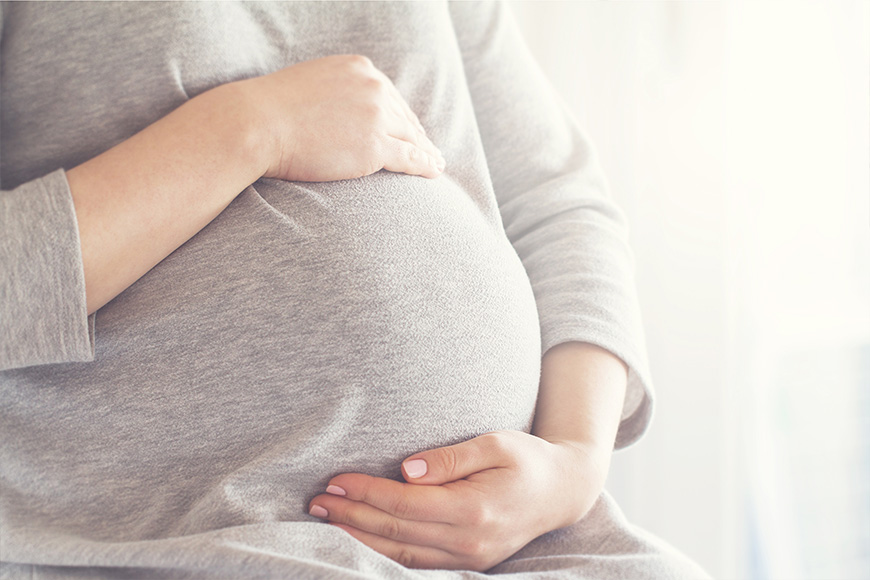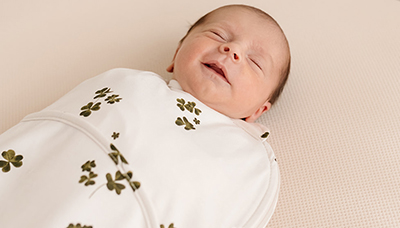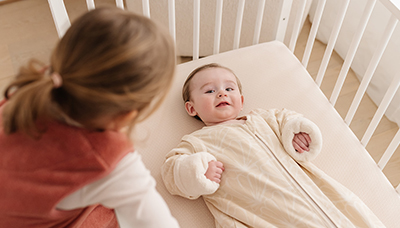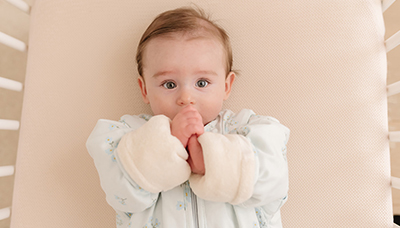You may read the term ‘common complications’ in pregnancy. Don’t panic! This doesn’t mean that they are actually common or the norm. It just means that if you’re going to experience any pregnancy complications, these are the most likely ones.


Common pregnancy complications include:
- Urinary tract infections in pregnancy
- Pelvic or abdominal pain
- Gestational diabetes
- Hypertension
- Pre-eclampsia
What is a pregnancy complication?
‘Complications of pregnancy’ is a term that covers any physical or mental condition that might actually affect your health or the health of your baby, including conditions you already have before your pregnancy, as well as those that develop while you’re pregnant or after the birth.
Who is at risk of pregnancy complications?
Some risk factors you can control – by changing your diet, for example – some are hereditary (but this doesn’t mean you’ll automatically develop them). You’re more likely to be at an increased risk of pregnancy complications if:
- You are over 40
- You are diabetic
- You’re overweight with a BMI (Body Mass Index) of more than 30
- You already have hypertension (High Blood Pressure) when you conceive
- You're carrying twins
- You have a serious pre-existing condition such as a heart, kidney or lung problem
What percentage of pregnancies have complications?
You’ll be happy to hear that the vast majority of pregnancies are free from any serious complications – over 80%. It’s estimated that only about 8% of women may be diagnosed with a complication during pregnancy – a condition that could affect their own or their baby’s health if left untreated. So the two things to take away are:
- The odds are well in your favour to enjoy a pregnancy free from complications.
- If a pregnancy complication is diagnosed, with the right treatment it need not affect your or your baby’s health.
Infections during pregnancy
It’s hard to keep the germs and bugs at bay at the best of times. But there are some infections you really don’t want to get while you’re pregnant as they can lead to pregnancy complications. here are a few to avoid.
Chickenpox in pregnancy
There’s a 90% chance you’re immune to the chickenpox virus. But if you’ve never had it (or you’re just not sure) and you come into contact with someone who has it, then contact your doctor or midwife straightaway. Having chickenpox while pregnant can be dangerous for both you and your baby.
Cytomegalovirus (CMV) in pregnancy
CMV is a common virus, part of the herpes family, which can also cause cold sores. Catching CMV while pregnant can affect an unborn baby’s sight and hearing and possibly cause learning difficulties and epilepsy.
Small children are common sources of the CMV virus, so no matter how lovable they are, try and keep your distance while you’re pregnant. Give them a hug instead of a kiss on the face, avoid sharing food, cutlery and drinking glasses with them, and wash your hands thoroughly with soap and water after any contact.
If your regularly work with young children, there’s a blood test you can take that will tell you whether you’ve already had CMV and developed immunity.
Group B streptococcus in pregnancy
Group B streptococcus (or Group B Strep or GBS) is a common infection that doesn’t often cause any symptoms or harm. But very occasionally group B strep infects the baby just before or during labour, causing complications and serious illness. The usual treatment is antibiotics during labour, if you’re at risk or if you had a group B strep urinary tract infection at any time during your pregnancy.
Urinary tract infections in pregnancy
Pregnancy is a perfect storm of perfect conditions for developing UTIs (Urinary Tract Infections). Being pregnant affects the composition of your urine and your immune system, the growing baby puts extra pressure on your bladder, reducing the flow and increasing the chance of infection. And add to all that the fact that the tubes that carry urine from the kidney to the bladder (the ureters) get wider, which makes it easier for bacteria to get all the way up to your kidneys. And that’s when it becomes a pregnancy complication!
What are the complications of UTIs during pregnancy?
UTI’s are more likely to become kidney infections if you’re pregnant, for all the reasons above. And kidney infections can cause problems for both you and your baby. Bacteria in your urine is linked to pre-eclampsia, a serious condition that can and should be treated early. UTIs are easily diagnosed with a simple urine test and can be treated with antibiotics that are safe to take during pregnancy.
How can I prevent UTIs?
Goodness knows, you’re dashing to the loo often enough just because you’re pregnant. So the last thing you want is a urinary tract infection during pregnancy as well! You can reduce the risk by:
- Drinking plenty of fluids, especially water
- Weeing (passing urine) as soon as you get the urge
- Urinating straightaway after sex
- Wiping from the front to the back after going to the toilet
- Taking showers instead of baths
- Avoiding douches, sprays or powders anywhere near your sensitive parts
When should I see my doctor?
See your doctor or midwife as soon as you spot any symptoms of a UTI. Infections can take off quickly, so don’t delay taking that first dose of antibiotics to avoid complications further down the line.
Changes in vaginal discharge
Increased vaginal discharge during pregnancy is perfectly normal and, surprisingly, a Good Thing. It’s nature’s way of flushing the vagina clean, preventing infection travelling up into the womb. However, do talk to your GP or midwife if your discharge has an unpleasant smell, you feel itchy or sore, or you have pain when you wee. It might be a sign of infection, the most likely diagnosis being vaginal thrush. Vaginal discharge is undignified, unpleasant, but treatable. And not a complication.


Pelvic or abdominal pain
Around one in five women experience some degree of pain and discomfort in their pelvis and abdomen during pregnancy. Occasionally this turns out to be more serious than the everyday discomfort of carrying all that extra weight while your body seems to be turning into rubber. The pain is worse when you’re going up or down stairs, and it even hurts when you just roll over in bed.
The symptoms could be related to a pregnancy complication known as pregnancy related pelvic girdle pain (PGP). This can lead to long term problems if left untreated, so do talk to your doctor. They’ll probably refer you to physiotherapist who may recommend you wear a pelvic support belt.
As well as gentle exercise combined with plenty of rest and avoiding heavy lifting, here are a couple of tips for living with PGP:
- Putting a pillow between your legs gives you extra support when lying on your side in bed
- Keeping your knees together while getting in and out of the car makes it a lot easier
Gestational diabetes
Diabetes is a disease that affects how our bodies process sugars and turn them into energy. You can be born with it (type 1), or it may develop later in life (type 2) due to an unhealthy diet and lifestyle – eating too many sugary foods, being overweight and not getting enough exercise are all risk factors. Then there is gestational diabetes, which is not food related, one of those pregnancy complications that appears just because of all those changes in pregnancy hormone levels.
What is gestational diabetes?
Gestational diabetes mellitus (GDM) is a type of diabetes caused not by your genes or your sugar intake, but purely by the hormonal changes brought on by pregnancy. With all the extra demands on it, your body sometimes just can’t produce enough insulin to control your blood glucose levels.
Who is at risk?
It affects a small percentage of pregnant women (around 1 in 20 in Europe) and usually appears around the 24th week. Even though it’s not directly caused by high blood sugar (glucose) levels, you’re at risk if you are overweight, inactive or pre-diabetic. So ditch the desserts and think about some safe, gentle exercise you might enjoy! You’re also at increased risk if:
- You are over 40.
- Your body mass index (BMI) is over 30.
- You’ve already given birth to a big baby weighing 4.5kg (10lb) or more at birth.
- You developed gestational diabetes in a previous pregnancy.
- One of your parents or siblings is diabetic.
- You are of south Asian, Black, African-Caribbean or Middle Eastern origin (regardless of where you were born).
- You have had a gastric bypass or other weight-loss surgery.
What are the symptoms of gestational diabetes?
Sometimes there are no symptoms at all, and gestational diabetes is only discovered through your routine blood tests.
If their blood sugars levels get to a really high level, some women may experience symptoms like:
- Feeling thirsty all the time.
- Needing to pee more often than usual.
- A dry mouth.
- Tiredness and fatigue.
- Blurred eyesight.
- Genital itching or thrush
What are the risks to me and my baby?
If you have any type of diabetes, high blood sugar levels while you're pregnant can increase the risk of serious pregnancy complications like pre-eclampsia, the need for a caesarean delivery or the baby being born too large. So do work with your healthcare professional and make sure your blood sugar levels are kept under control both before and after the birth.
How is gestational diabetes treated?
First of all, if your health care professionals think you’re at risk you’ll be offered a screening test called an oral glucose tolerance test (OGTT). This involves a blood test after fasting for a few hours, then again after a sugary drink to see how your body is handling the glucose.
If you develop gestational diabetes you’ll need regular blood tests (you’ll be given a home test kit) and careful blood sugar management throughout your pregnancy. This may involve tablets or insulin injections. If your diabetes is not too severe, with regular checks and the right medication there’s no reason why you shouldn’t have a straightforward natural birth and a bouncing baby.
The monitoring and treatment may need to carry on after the birth, too, to make sure you don’t develop further complications.
What if you already have type 1 or type 2 diabetes?
Some women are already diabetic when they become pregnant, with either type 1 or type 2 diabetes. For them, managing their blood sugar levels becomes more important than ever. In fact, high blood sugar as early as conception has been shown to affect the health of the baby and the birth further down the line.
High blood pressure during pregnancy
High blood pressure (or hypertension) may not have any symptoms but can be serious when you’re pregnant. If you already have chronic hypertension before you become pregnant, you should be referred to a specialist to make sure your blood pressure is carefully monitored and managed throughout your pregnancy. You may need to change your regular prescription, as not all blood pressure medications are safe to take while you’re pregnant.
Some women develop high blood pressure for the first time when they get pregnant – usually after 20 weeks. This is known as pregnancy induced hypertension. If tests show that you have high blood pressure combined with protein in your urine, you may have pre-eclampsia and require even more careful and frequent antenatal checks throughout your pregnancy.
What are the risks of high blood pressure during pregnancy?
High blood pressure while you’re pregnant increases the risk of pre-term delivery and low birth weight as well as more serious issues such as eclampsia, stroke, and placental abruption (when the placenta separates from the wall of the uterus).
What can you do about high blood pressure during pregnancy
The risks attached to high blood pressure while you’re pregnant are all good reasons to take especially good care of yourself: eating heart-healthy foods, avoiding salty snacks and foods, keeping active, keeping a check on your weight and regularly checking your blood pressure at home so you can spot changes straightaway.
If you’re on the high risk list for pre-eclampsia, your health provider may recommend you take low-dose baby aspirin from 12 weeks onwards. (But please, never just buy over the counter medicines without checking with your doctor or midwife.)
Pre-eclampsia
If ante-natal tests show that you have high blood pressure and protein in your urine, this could be a sign you have pre-eclampsia, one of the more serious pregnancy complications.
What is pre-eclampsia?
Pre-eclampsia is a condition that affects some pregnant women, and usually appears after the 20th week of pregnancy. Very rarely it can occur after the birth, most often within 48 hours but any time up to 4 weeks afterwards. This is called postpartum preeclampsia.
How can I tell if I’ve got pre-eclampsia?
Pre-eclampsia is usually picked up during your routine ante-natal checks. But if you’re experiencing symptoms such as the ones on this list, contact your health professionals. It can come on quite suddenly, and it’s important to treat it straightaway to avoid more serious complications.
The symptoms of pre-eclampsia?
- A blinding headache that just won’t go away.
- Blurred vision or flashing lights in front of your eyes.
- Severe pain just below your ribs.
- Vomiting.
- Swelling of your feet, ankles, face and hands.
What causes pre-eclampsia?
The exact cause of pre-eclampsia isn’t known, but it’s thought to be due to a problem with the placenta – the organ that links your baby to your blood supply so that nutrients can flow through to them.
There are risk factors that can increase your chances of getting it, such as heredity, high blood pressure, carrying more than one baby, your age and your BMI (Body Mass Index). If you think you might be at risk, or tests show that you are, your medical professionals may suggest preventive measures you can take to avoid pregnancy complications.


How is pre-eclampsia treated?
If you’re diagnosed with pre-eclampsia, you’ll find you’re spending more time at the ante-natal clinic than before. You’ll be regularly checked and monitored, and maybe even spend some time in hospital during your pregnancy to make sure everything’s OK with you and baby. Pre-eclampsia usually resolves itself within 6 weeks after the baby is born. But occasionally the only cure for pre-eclampsia is to have the baby, sometimes somewhat earlier than planned!
If this list of pregnancy complications looks alarming, just remember they're really not that common and many women sail through with nothing more than minor backache, strange food cravings and a few weeks of morning sickness. But now you know what to look out for and when to call for help.
The information in this article is for general information only and is not a substitute for professional medical advice. Consult a qualified healthcare professional for personal advice.







